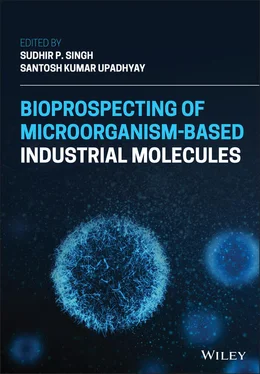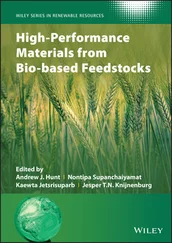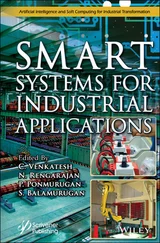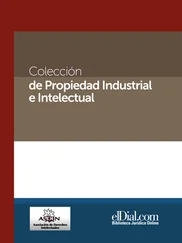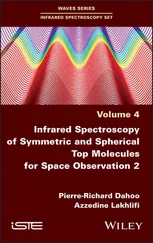Library of Congress Cataloging‐in‐Publication Data
Names: Singh, Sudhir P., editor. | Upadhyay, Santosh Kumar, editor.
Title: Bioprospecting of microorganism‐based industrial molecules / edited by Sudhir P. Singh, Center of Innovative and Applied Bioprocessing (DBT‐CIAB), Mohali, India, Santosh Kumar Upadhyay, Department of Botany, Panjab University, Chandigarh, India.
Description: First edition. | Hoboken, NJ : Wiley, 2021. | Includes bibliographical references and index.
Identifiers: LCCN 2021028318 (print) | LCCN 2021028319 (ebook) | ISBN 9781119717249 (cloth) | ISBN 9781119717157 (adobe pdf) | ISBN 9781119717263 (epub)
Subjects: LCSH: Biotechnological microorganisms. | Biomolecules. | Industrial microorganisms.
Classification: LCC TP248.27.M53 B5635 2021 (print) | LCC TP248.27.M53 (ebook) | DDC 660.6–dc23
LC record available at https://lccn.loc.gov/2021028318LC ebook record available at https://lccn.loc.gov/2021028319
Cover Design: Wiley
Cover Image: © Graphics Master/Shutterstock
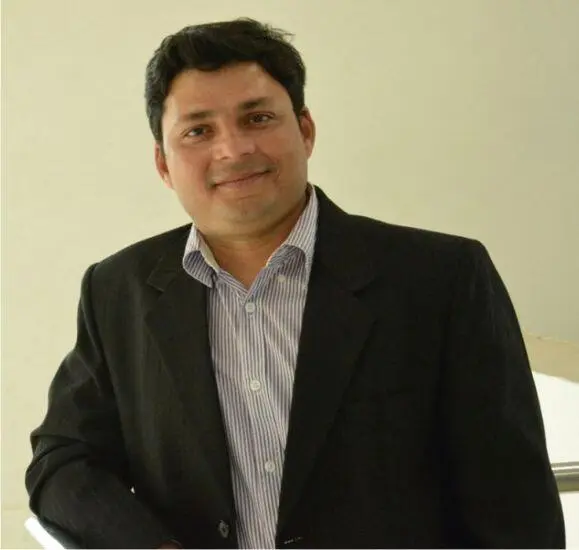
Dr. Sudhir P. Singh is currently Scientist‐D at the Center of Innovative and Applied Bioprocessing (DBT‐CIAB), Mohali, India. He has been working in the area of molecular biology and biotechnology for more than a decade. Currently, his primary focus of research is gene mining and biocatalyst engineering for the development of approaches for transformation of agro‐industrial residues and under‐ or un‐utilized side‐stream biomass into value‐added bioproducts. He has explored the metagenomic resources from diverse ecological niches and developed enzyme systems for catalytic biosynthesis of functional sugar molecules such as D‐allulose, turanose, fructooligosaccharides, glucooligosaccharides, 4‐galactosyl‐kojibiose, xylooligosaccharides, levan, dextran, resistant starch, and so on. Dr. Singh has published over 60 research articles, 04 review articles, and 06 books (edited). Further, he has 06 patents (granted) to his credit as an inventor. He has been conferred International Bioprocessing Association‐Young Scientist Award (2017), School of Biosciences‐Madurai Kamraj University (SBS‐MKU) Genomics Award (2017), Professor Hira Lal Chakravarty Award, ISCA, DST, (2018), Gandhian Young Technological Innovation Award to team (as a guide) (2019), and the member of the National Academy of Sciences, India (2020).
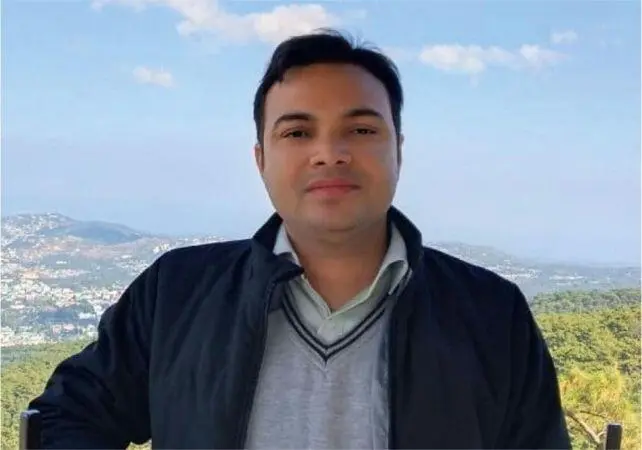
Dr. Santosh Kumar Upadhyay is currently working as an assistant professor in the Department of Botany, Panjab University, Chandigarh, India. Prior to this, Dr. Upadhyay was DST‐INSPIRE faculty at the National Agri‐Food Biotechnology Institute, Mohali, Punjab, India. He did his doctoral work at the CSIR‐National Botanical Research Institute, Lucknow, and received his Ph.D. in Biotechnology from UP Technical University, Lucknow, India. He has been working in the field of Plant Biotechnology for more than 14 years. His present research focuses in the area of functional genomics. He is involved in the bio‐prospecting and characterization of various insect toxic proteins from plant biodiversity, and defense and stress signaling genes in bread wheat. His research group at PU has characterized numerous important gene families and long noncoding RNAs related to the abiotic and biotic stress tolerance and signaling in bread wheat. He has also established the method for genome editing in bread wheat using CRISPR‐Cas system and developed a tool SSinder for CRISPR target site prediction. His research contribution led the publication of more than 60 research papers in leading journals of international repute. Further, there are more than five national and international patents, four books to his credit. In recognition of his substantial research record, he has been awarded NAAS Young scientist award (2017–2018) and NAAS‐Associate (2018) from the National Academy of Agricultural Sciences, India, INSA Medal for Young Scientist (2013) from the Indian National Science Academy, India, NASI‐Young Scientist Platinum Jubilee Award (2012) from the National Academy of Sciences, India, and Altech Young Scientist Award (2011). He has also been the recipient of the prestigious DST‐INSPIRE Faculty Fellowship (2012), and SERB‐Early Career Research Award, (2016) from the Ministry of Science and Technology, Government of India. Dr. Upadhyay also serves as a member of the editorial board and reviewer of several peer‐reviewed international journals.
Jayanthi AbrahamMicrobial Biotechnology Lab, School of Bioscience and Technology, Vellore Institute of Technology, Vellore, Tamil Nadu, India
Maria F. Salazar AffonsoCentro de Ciências da Vida, Universidade do Vale do Taquari – Univates, Lajeado, RS, Brazil
Cristobal N. AguilarBioprocesses and Bioproducts Research Group, Food Research Department, School of Chemistry, Autonomous University of Coahuila, Saltillo, Coahuila, México
AnjanaCenter of Innovative and Applied Bioprocessing, Mohali, Punjab, India
Débora Bublitz AntonPrograma de Pós‐Graduação em Biotecnologia (PPGBiotec), Universidade do Vale do Taquari – Univates, Lajeado, RS, Brazil
Rwivoo BaruahMicrobiology & Fermentation Technology Department, CSIR‐Central Food Technological Research Institute, Mysuru, Karnataka, India
SA BelorkarDepartment of Microbiology and Bioinformatics, Atal Bihari Vajpayee University, Bilaspur, Chattisgarh, India
Priyanka BhatDepartment of Chemical Engineering, National Institute of Technology Karnataka, Mangalore, Karnataka, India
José de Jesús Cázares‐MarineroDepartment of Research & Development, Polioles, S.A. de C.V, Mexico
Jasmita ChauhanDepartment of Microbiology, Marwadi University, Rajkot, Gujarat, India
Verônica ContiniPrograma de Pós‐Graduação em Biotecnologia (PPGBiotec), Universidade do Vale do Taquari – Univates, Lajeado, RS, Brazil Programa de Pós‐Graduação em Ciências Médicas (PPGCM), Universidade do Vale do Taquari – Univates, Lajeado, RS, Brazil
Pritha ChakrabortyMicrobial Biotechnology Lab, School of Bioscience and Technology, Vellore Institute of Technology, Vellore, Tamil Nadu, India
Ankita ChatterjeeMicrobial Biotechnology Lab, School of Bioscience and Technology, Vellore Institute of Technology, Vellore, Tamil Nadu, India
Jorge Alberto Vieira CostaLaboratory of Biochemical Engineering, College of Chemistry and Food Engineering, Federal University of Rio Grande (FURG), Rio Grande, RS, Brazil
Bruno DahmerPrograma de Pós‐Graduação em Biotecnologia (PPGBiotec), Universidade do Vale do Taquari – Univates, Lajeado, RS, Brazil
Michele Greque de MoraisLaboratory of Microbiology and Biochemistry, College of Chemistry and Food Engineering, Federal University of Rio Grande (FURG), Rio Grande, RS, Brazil
Claucia F. Volken de SouzaPrograma de Pós‐Graduação em Biotecnologia (PPGBiotec), Universidade do Vale do Taquari – Univates, Lajeado, RS, Brazil Programa de Pós‐Graduação em Sistemas Ambientais Sustentáveis, Universidade do Vale do Taquari – Univates, Lajeado, RS, Brazil
Rodrigo G. DucatiPrograma de Pós‐Graduação em Biotecnologia (PPGBiotec), Universidade do Vale do Taquari – Univates, Lajeado, RS, Brazil
Читать дальше
